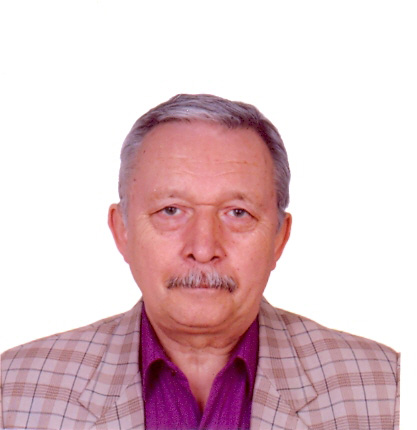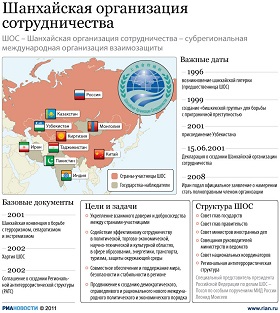On September 12, 2014, the capital of Tajikistan hosted the Shanghai Cooperation Organization’s annual summit, which saw the signing of the Dushanbe Declaration, outlining the current problems the organization faces and goals set. We met former SCO Deputy Secretary General Vladimir Zakharov, currently Senior Lecturer at the HSE School for Oriental Studies, and asked him how he sees the alliance’s goals and future given the regional difficulties.
Dr. Zakharov, how would you sum up the outcomes of the SCO Summit and its political significance? What key decisions did its leaders take and what significance does the Dushanbe Declaration have?
Despite the complicated global landscape, the SCO Summit was business as usual, in terms of its formal and organizational components. The event was attended by all heads of member countries and observer states, except for India and Pakistan, which were represented by foreign policy chiefs, as well as by governors of international partner organizations and guest of honor Turkmen President Gurbanguly Berdymukhammedov. On the sidelines, bilateral talks between Central Asian leaders, primarily the markedly friendly meetings between Emomali Rahmon, Islam Karimov, and Almazbek Atambayev, were particularly significant, indicating that they are all aware of the dangers inherent in fueling territorial and ethnic tensions. This success results from both Tajik diplomacy and multilateral SCO efforts.
Against the backdrop of Western sanctions, President Putin found himself surrounded by friends and partners in Dushanbe who were interested both in advancing multifaceted cooperation with the SCO and in strengthening diverse ties with Russia. Crucially, the SCO countries understand that Moscow remains the organization's main driving force and generator of ideas. It is no coincidence that on the eve of the Dushanbe Summit it was Russia that compiled and presented its partners with the draft SCO Medium-term Development Strategy through 2025 to be adopted in Ufa in 2015.
The event participants held extensive bilateral and multilateral exchanges on key regional and global issues, including: Afghanistan, the Middle East, North Africa and regions neighboring the SCO. Unfortunately, the documents adopted did not reflect the acuteness of the problems faced. Instead, particularly regarding Ukraine, Iraq, and Syria, they seem bureaucratically lackluster. This comes in stark contrast to the fierce disputes seen at the current UN General Assembly session, just two weeks after the SCO summit.
The Dushanbe Declaration and Information Communiqué do not fully reflect the participants’ broader sentiments about the need for close coordination on security issues, particularly since terrorism, separatism, extremism, the illegal trafficking of drugs, psychotropic substances and their precursors, as well as transboundary organized crime and cyber threats undermine stability across the SCO. The Western coalition is due to withdraw from Afghanistan, a country currently incapacitated by political deadlock and the advance of the intransigent Taliban opposition. The situation is further aggravated by the absence of an agreement between Kabul and its Western partners on the continued presence of the U.S. and NATO contingents.
In fact, the Dushanbe Declaration statement on Afghanistan does not outline a solid SCO position on the deteriorating situation and does not offer Kabul any help, meaning that assistance will remain exclusively bilateral. The organization only signals its determination to act in full accordance with UN decisions. I expect the SCO states to diverge on different aspects of normalizing conditions in Afghanistan, and only hope that as events gain momentum the SCO’s internal dialogue on particular problems will intensify and that the organization's decisions will become more material in light of growing threats to the SCO and its members. To this end, the presence of Turkmenistan’s leader, who is already under diverse pressures from the Taliban (despite his "neutrality across all horizons") seems especially significant.
I think that, during its SCO presidency, Russia will implement its 2012 initiative aimed at employing the Regional Counterterrorism Structure in establishing a multipurpose center in Tashkent for countering terrorism, illegal traffic of drugs and arms, organized crime and information threats.
The Dushanbe Summit functioned as a sort of prelude for the Russian presidency of the SCO, which is sure to see the successful implementation of the large-scale formal and organizational measures, the main goal being to solve pressing political and economic problems, and Moscow's ability to shape the SCO's development vector. As far as diplomacy is concerned, it is going to be a chess game on many boards aimed at convincing partners that it is a win-win situation.
The Kremlin has announced that Russian presidency will preside over an expansion of SCO membership. What prospects are there for accepting India and Pakistan? Would it risk generating more political arguments and dilute the organization's unity?
It is interesting that the considered statement from Russia and China about the potential accession of India and China at the Ufa Summit, caught many pundits off-guard – particularly since the Dushanbe Summit approved the Procedure for Granting the SCO Membership and the amended standard Memorandum on Obligations of Applicant States for Obtaining Member Status.
Three preliminary conclusions seem relevant here.
First, the longstanding efforts of Russia's diplomacy to erect a new security architecture in Asia are bringing fruit. No secret that Moscow has employed its clout to persuade its Chinese and Indian partners that the construction of a trilateral political structure is strategically practicable. And it is important to note that the Russia-India-China format was set up 15 years ago to outline areas of political and practical cooperation. In fact, the project may well materialize under SCO auspices.
Second, Beijing's agreement to the admission of New Delhi points to tectonic shifts in China-India relations, principally in settling their border and territorial disputes, and more broadly in the complex web of political and economic affairs. The process seems to generate greater trust between the two Asian giants, primarily in their understanding that political hurdles must be removed asap and interference in each other's affairs is inadmissible.
Third, both Asia and the entire world are facing a major shift in the balance of power as a result of the rise of Russia, China and India. New centers of attraction emerge – changing the pattern of political and economic ties. To an extent, this also concerns Pakistan, which has to adapt to the moves of Beijing, its all-weather friend, while distancing itself from the United States. I believe this trend can be amplified by the Chinese idea of creating the Silk Route Economic Belt, which would counter U.S. political and economic interests in the region.
I agree that admission of India and Pakistan to the SCO would require substantial efforts from all parties, as well as structural changes to the organization. If the currently strict principle of consensus decision-making remains, there could well be considerable complications for rapprochement and compromises. Besides, each of these states possesses a British-style diplomatic system that differs from that of the SCO countries. Hence, there is a need to alter the SCO’s approach to governance, introduce a third working language, revise staff lists, etc.
Building a potent regional organization for multifaceted cooperation should involve the combined engagement of intellectual, financial, and organizational resources, as well as a painstaking review of the EU and ASEAN practices to be applied in adjusting the emerging Medium-term SCO Development Strategy. As a matter of fact, issues of political and economic integration will come to the forefront. I would be interested in working in an organization like that.
Was there any progress on the mechanism to finance SCO investment projects? What do you think about the future SCO Bank and its niche in the global financial system?
The heads of states have instructed the relevant agencies to speed up their review of issues related to setting up the SCO Development Fund (Special Account) and SCO Development Bank. However, Russia seems to be in a difficult position, as it has already pledged to participate in the establishment of similar banks within the Eurasian Economic Union and BRICS, involving an extra financial burden.
At the same time, palliative decisions on surrogate financial schemes would not be practical, since they may imply a lack of seriousness in the parties’ approach, pushing this highly significant process toward an impasse. Progress in this area is very important for Central Asian states, which still associate their socio-economic development with the financial and lending avenues offered by the SCO and its members.
The Summit statement that "the main role in the development of business, trade and investment cooperation in the SCO area shall belong to interaction among its business and financial circles, the SCO Business Council, and the SCO Interbank Association…" is also particularly telling, as it suggests that the heads of state are pushing the businesses and banks to take the lead on development-related economic, financial and lending problems.
In the worst-case scenario, this might discourage government agencies from fulfilling this significant and politically noteworthy goal. Since businesses are still less than receptive to the SCO project activities, it seems proper for the governments to create an attractive environment for their engagement.
Interviewer: Maria Gurova, RIAC Program Assistant





